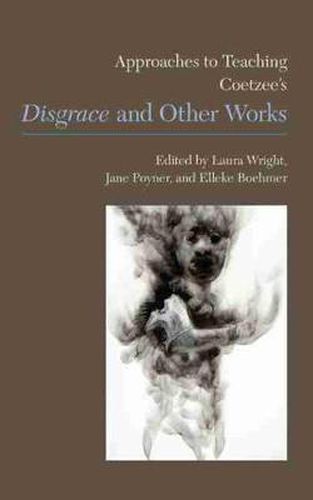Readings Newsletter
Become a Readings Member to make your shopping experience even easier.
Sign in or sign up for free!
You’re not far away from qualifying for FREE standard shipping within Australia
You’ve qualified for FREE standard shipping within Australia
The cart is loading…






The novels of the South African writer J. M. Coetzee won him global recognition and the Nobel Prize in Literature in 2003. His work offers substantial pedagogical richness and challenges. Coetzee treats such themes as race, aging, gender, animal rights, power, violence, colonial history and accountability, the silent or silenced other, sympathy, and forgiveness in an allusive and detached prose that avoids obvious answers or easy ethical reassurance.
Part 1 of this volume, Materials, identifies secondary materials, including multimedia and Internet resources, that will help instructors guide their students through the contextual and formal complexities of Coetzee’s fiction. In part 2, Approaches, essays discuss how to teach works that are sometimes suspicious of teachers and teaching. The essays aim to help instructors negotiate Coetzee’s ironies and allegories in his treatment of human relationships in a changing South Africa and of the shifting connections between human beings and the biosphere.
$9.00 standard shipping within Australia
FREE standard shipping within Australia for orders over $100.00
Express & International shipping calculated at checkout
The novels of the South African writer J. M. Coetzee won him global recognition and the Nobel Prize in Literature in 2003. His work offers substantial pedagogical richness and challenges. Coetzee treats such themes as race, aging, gender, animal rights, power, violence, colonial history and accountability, the silent or silenced other, sympathy, and forgiveness in an allusive and detached prose that avoids obvious answers or easy ethical reassurance.
Part 1 of this volume, Materials, identifies secondary materials, including multimedia and Internet resources, that will help instructors guide their students through the contextual and formal complexities of Coetzee’s fiction. In part 2, Approaches, essays discuss how to teach works that are sometimes suspicious of teachers and teaching. The essays aim to help instructors negotiate Coetzee’s ironies and allegories in his treatment of human relationships in a changing South Africa and of the shifting connections between human beings and the biosphere.